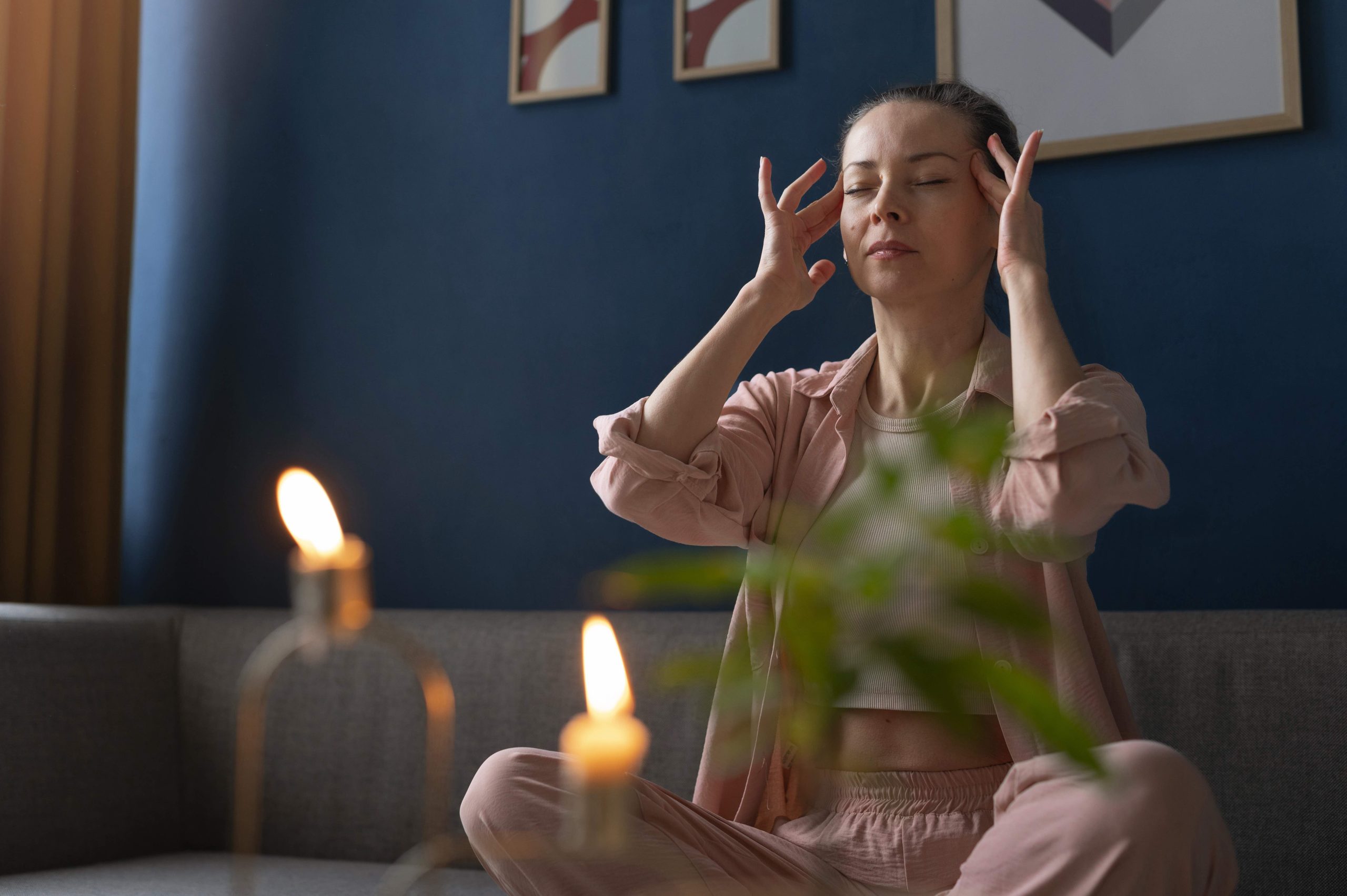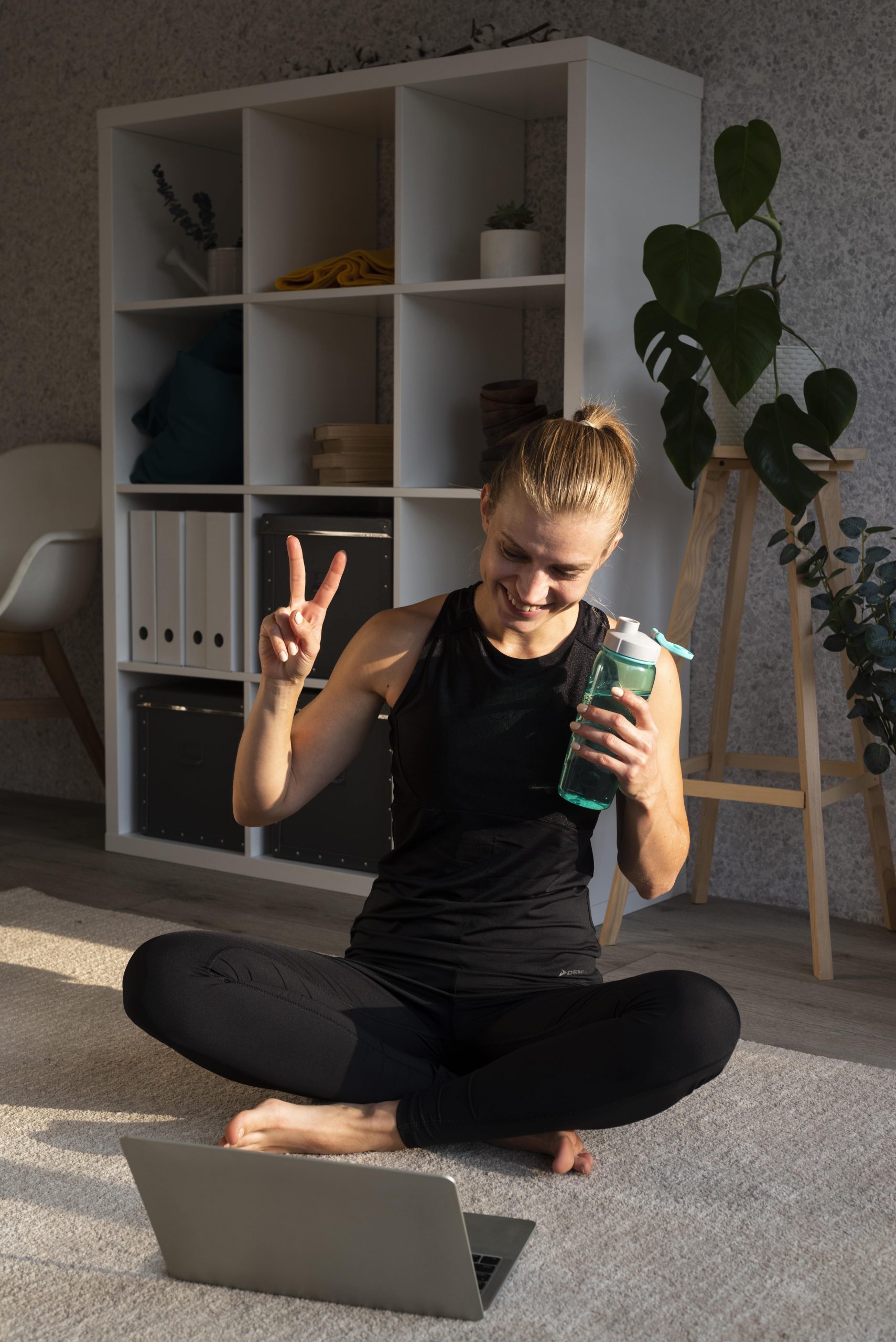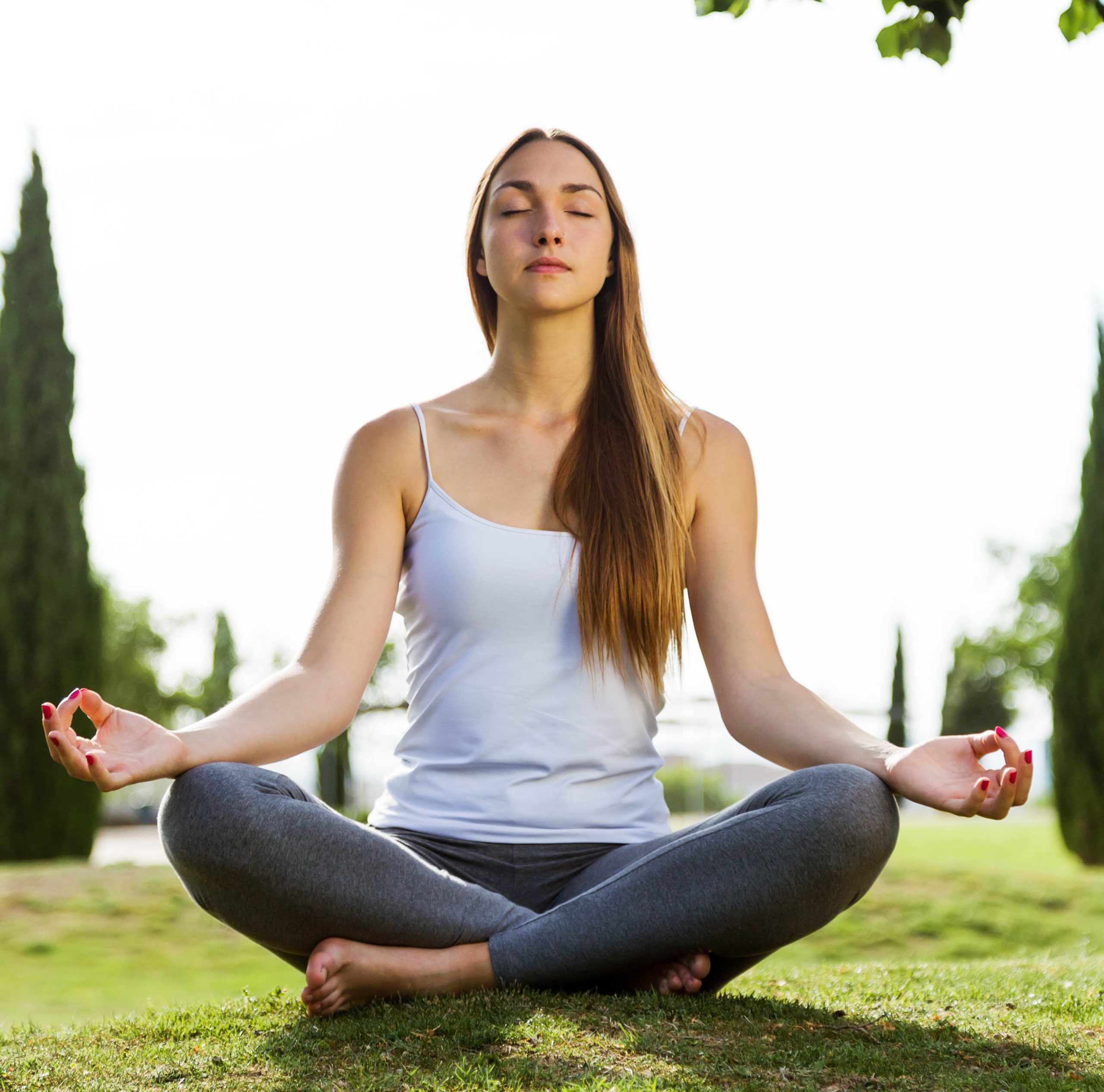Wellness includes how we think, work, rest, move, and care for our minds and body. As daily routines change and digital habits grow, people are making health a priority and this is reflected in the Global Wellness Institute report that the wellness economy is projected to reach $8.5 trillion by 2027.

Per McKinsey, despite the wellness sector’s growth over the past several years, consumers report that some of their wellness needs—including cognitive health, mindfulness and mental health, and longevity—remain unmet. Younger consumers, particularly Gen Z, report feeling this gap more acutely than other age groups, particularly concerning mental, cognitive, heart, and gut health. This guide offers clear steps to help readers build a simple and sustainable approach to wellness.
Mental Wellness: Managing Stress in Modern Life
Most of us feel a hectic, on-the-go lifestyle is the only one worth living. However this FOMO-induced hustle is good until we factor in the realization that the current generation is facing unprecedented levels of mental stress and pressure due to digital overload, work deadlines and constant comparison, with a largely sedentary lifestyle further complicating matters.
While it’s natural and normal to feel stressed, it is important to recognize when this silent scourge begins taking a toll on our physical and mental health. Mental wellness under pressure involves practical, actionable strategies that build emotional resilience and help maintain steadiness. Per McKinsey, forty-two percent of Gen Z and millennials in the United States say mindfulness is a very high priority.
Useful tools include:
- -Mindful walk: take a break from work and go for a quick walk. Ensure that you focus only on nature i.e. the grass, the clouds and the sound of birds chirping. You’ll be surprised how rejuvenated you feel.
- -Reduce phone notifications: To reduce notifications and set “downtime windows” on your phone, use the Do Not Disturb feature on Android or Downtime feature on iOS in your device’s settings.
- -Gratitude journal: before bed-time, list the positive events that happened during the day. “Gratitude works its magic by serving as an antidote to negative emotions. It’s like white blood cells for the soul, protecting us from cynicism, entitlement, anger, and resignation,” Arianna Huffington noted in her book, Thrive.
- -Listen to music: Playing your favourite music during work (if permitted) does wonders to lift the spirit.
- -Deep breathing: The next time you feel stressed, get up from your desk, find a silent spot and focus your thoughts on the simple act of breathing in and out. Try the 4-7-8 technique by holistic medicine expert, Dr Andrew Weil. Breath in for four seconds, hold your breath for another seven seconds, and exhale.
Physical Wellness: Movement That Fits Daily Life
Physical wellness benefits immunity, hormone balance, and energy levels, and does not always require long gym sessions. The key to improving physical wellness is consistency in moderate movement. Even short, regular physical activity throughout the day, such as a brisk 10-minute walk, can provide health benefits.
Victoria Beckham is so committed to her fitness that she takes her personal trainer Bobby Rich with her on holiday. “Victoria’s training is a priority to her and her dedication is nothing short of impressive. She is with me in the gym five days a week – and even if she’s travelling there are no excuses, and we move to online sessions. Either way, she’s putting the work in,” he told Sun.
Ideas for busy people:
- -Morning Stretch Routine: Start the day with gentle stretching to improve flexibility and reduce muscle tension. Focus on areas that get tight overnight, like the lower back, hips, and shoulders.
- -20-Minute Cardio Session: Engage in moderate-intensity cardio such as brisk walking, jogging, or cycling. This boosts heart health, burns calories, and increases energy levels for the day ahead.
- -Strength Training Circuit: Incorporate a simple 15-minute bodyweight workout like squats, lunges, push-ups, and planks. Build strength and toning muscles, focusing on different muscle groups each day.
- -Mindful Movement: Dedicate 10–15 minutes to mindful movement. Practices like yoga help improve mental clarity, reduce stress, and enhance flexibility, fostering both physical and mental well-being.
- -Evening Walk: Take a 10–20 minute walk after dinner or engage in light stretching before bed. This helps with digestion, reduces evening stress, and improves sleep quality.
Nutrition and Gut Health
Gut health emphasizes a fiber-rich diet with fermented foods, minimal processed items and hydration, highlighting that a healthy gut microbiome influences mood, immunity, digestion and skin quality. In his book The Burckel Diet, for Microbiota Health, André Burckel advises incorporating plant-based diet like Resistant Starches (wheat, beans, bananas), Beta Glucan (oats, barley), Fructans (asparagus, chicory, melon), Fibers (kale, figs, almonds), and Polyphenols (dates, tea, cocoa).
The signs of an unhappy gut are bloating, lethargy, insomnia, reduced immunity and depression. How to optimise microbiota:
- -Anti-inflammatory breakfasts such as oats, berries, or eggs
- -Drinking water at regular intervals
- -Fermented foods like yoghurt, kefir, or kimchi
- -Five-ingredient meal bowls during travel with vegetables, grains, proteins, and healthy fats.
Sleep and Recovery

Sleep helps the body repair itself and supports mental clarity. During deep sleep, the body focuses on cellular repair, tissue growth, and muscle recovery. It also promotes the production of growth hormones, which help regenerate damaged cells and support tissue health. As a result, sleep allows the body to heal from the wear and tear of daily life, supporting physical recovery and energy replenishment.
Lack of sleep, on the other hand, disrupts this restorative process and can lead to dry, dull skin, as the body struggles to regenerate and repair skin cells. It also impacts mood, making us irritable and prone to stress, while weakening the immune system’s ability to fight off infections. Chronic sleep deprivation can also affect cognitive function, leading to reduced focus, poor decision-making, and impaired mental clarity. Thus, sleep is vital for maintaining physical health, emotional well-being, and mental sharpness.
Steps that support better rest:
- -Reduce screen time before bed
- -Keep the bedroom cool and dark
- -Get morning sunlight to set the body clock
- -Go to bed and wake up at the same time every day to regulate your body’s internal clock.
- -Limit caffeine and heavy meals before bed as they can interfere with your ability to fall asleep.
Digital Wellness
Digital wellness refers to the practice of maintaining a healthy relationship with technology to enhance well-being. It involves being mindful of how much time is spent on devices, as well as the content consumed. By setting boundaries, such as taking regular breaks or limiting screen time before bed, we can prevent digital overload and reduce stress.
Constant connectivity through social media, emails, and notifications can lead to feelings of overwhelm or anxiety. By focusing on mindful technology use, we can avoid burnout and improve focus and productivity. Digital wellness also includes protecting privacy and ensuring safe online practices, helping us feel secure in our digital environments.

Simple ways to improve digital wellness:
- -Set limits for social media
- -Turn off non-essential notifications
- -Keep specific “offline hours” during evenings
- -Be intentional about how much time you spend online and avoid mindlessly scrolling through social media
- -Designate the bedroom or dining area as tech-free zones to encourage quality time
Building A Personal Wellness Routine
Building a personal wellness routine is essential for maintaining physical and mental well-being. It begins with understanding our body’s needs and setting achievable goals that align with our lifestyle. A balanced wellness routine includes exercise, healthy diet and sleep, but it can also incorporate mindfulness practices like meditation or journaling. The key is to start small, focusing on habits we can maintain and build consistency. Over time, these habits will become a natural part of our daily life.
Physical activity is an important component of any wellness routine, as it strengthens the body and improves mental clarity. Whether it’s a brisk walk, yoga session, or strength training, exercise boosts mood, reduces stress, and enhances energy levels. The goal should not be to push ourselves to the limit but to incorporate movement that feels good and is sustainable long-term. It s important to choose activities we enjoy, as they will be easier to stick to and more rewarding in the long run.
Nutrient-rich foods such as fruits, vegetables, whole grains, and lean proteins, can fuel our body and help us feel your best. Additionally, prioritising hydration and listening to our body’s hunger and fullness cues will help create a healthy relationship with food. Combine these habits with regular rest and relaxation to reduce stress and enhance overall well-being. The goal of a personal wellness routine is to find balance and consistency that works for us, helping to nurture our mind, body, and spirit.
A simple framework:
- -Hydration: Begin each day with a glass of water to kickstart our metabolism and improve energy levels.
- -Daily Exercise Goal: Choose a form of exercise that you enjoy, whether it’s walking, stretching, or a home workout. Aim for 20–30 minutes a day, five days a week.
- -Meal Prep for the Week: Include plenty of vegetables, fruits, lean proteins, and whole grains.
- -Take 5-Minute Breaks Every Hour: If you’re working or studying, set a timer to remind yourself to take a quick break each hour. Use this time to stretch, walk around, or breathe deeply to reduce stress.
- -Bedtime Routine: Incorporate relaxing activities like reading or listening to calming music.
- -Mindfulness: Dedicate five minutes each day to meditation, deep breathing, or journaling.
- -Use a journal or wellness app to track your physical activity, meals, and mood.
- -Weekly Wellness Goals: set simple wellness goals like drinking water, new workout, or a balanced meal for lunch every day. This keeps you focused on continuous improvement.
- -Schedule ‘Me Time’: make time for yourself each week to engage in activities you enjoy, such as reading, taking a bath, or spending time in nature.
- -Socialise: connect with friends or join a fitness class to support well-being.


Jasmeen Dugal is Associate Editor at FashionABC, contributing her insights on fashion, technology, and sustainability. She brings with herself more than two decades of editorial experience, working for national newspapers and luxury magazines in India.
Jasmeen Dugal has worked with exchange4media as a senior writer contributing articles on the country’s advertising and marketing movements, and then with Condenast India as Net Editor where she helmed Vogue India’s official website in terms of design, layout and daily content. Besides this, she is also an entrepreneur running her own luxury portal, Explosivefashion, which highlights the latest in luxury fashion and hospitality.











